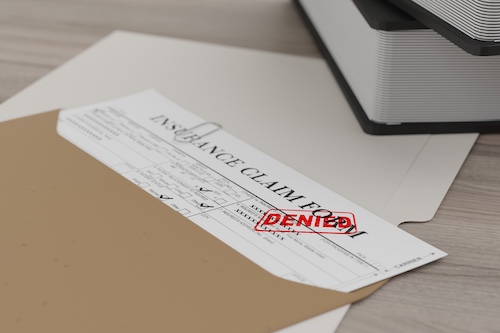Workers’ Comp Entitles You to Wage Replacement
Suffering a workplace injury can be physically, emotionally, and financially draining. Your primary concern should be recovering and getting back on your feet, yet that process can often become complicated when you’re balancing the need to secure wage replacement and workers’ compensation benefits. In Hapeville, GA, workers injured in accidents are entitled to compensation, but the process for securing wage replacement can be challenging for those who are unfamiliar with the system.
Let’s break down how wage replacement works, and what steps you need to take to secure the appropriate benefits.
What Is Wage Replacement in Workers’ Compensation?
Wage replacement is the financial benefit provided through workers’ compensation that supplements what you would have earned had you been able to work. In Hapeville, this compensation is crucial for workers who may need time off for treatment, recovery, or rehabilitation following an accident or illness sustained while on the job.
It’s important to note that wage replacement benefits don’t pay your full salary. They’re typically two-thirds of your average weekly wage (AWW), and subject to state maximum limits. While this amount does provide some assistance, it’s often less than what you would earn while working, and will only last for a specific amount of time.
How Wage Replacement Works in Hapeville Workers’ Comp Claims
Wage replacement benefits in Hapeville are governed by workers’ compensation laws that apply across Georgia. These benefits vary depending on the severity of your injury, the degree to which you can still work, and the type of injury that you’ve sustained. Here are the key types of wage replacement benefits you need to know about.
1. Temporary Total Disability (TTD) Benefits
When you are temporarily unable to work due to an injury, TTD benefits will replace a portion of your wages. These are available if your doctor determines that you are unable to perform your job duties temporarily, and they last until you are able to return to work or have reached maximum medical improvement (MMI).
To be eligible for TTD benefits:
-
You must be unable to work at all due to the injury.
-
Your injury must be work-related and verified by a doctor.
How much will you receive?
-
TTD benefits are usually two-thirds of your average weekly wage (AWW).
-
There is a cap on the amount you can receive per week, which may vary based on the year and your average weekly wage.
2. Permanent Partial Disability (PPD) and Lifetime Temporary Total Disability (TTD) Benefits
If you suffer a permanent injury that limits your ability to return to work, you may qualify for PPD benefits. However, if your injury is catastrophic in nature — such as a spinal cord injury, brain injury, or amputation — you may qualify for lifetime TTD benefits.
Note: Lifetime TTD is known as permanent total disability (PTD) in other states, and this alternative name is sometimes used to describe it here. Both refer to wage replacement, even though the benefits are technically categorized as “temporary.” These benefits continue as long as you remain totally unable to work due to your injury.
How are these benefits calculated?
-
PPD benefits are based on an impairment rating (a percentage determined by your doctor) and the severity of your injury.
-
Lifetime TTD benefits are based on two-thirds of your average weekly wage, and the benefits last for life.
Factors That Affect Wage Replacement in Workers’ Compensation Claims
Several factors influence the amount of wage replacement you can receive under workers’ compensation in Hapeville, GA. These include your average weekly wage (AWW), the severity of your injury, and the type of benefits you qualify for.
1. Average Weekly Wage
Your average weekly wage is the basis for calculating wage replacement benefits. It is determined by adding up your earnings over the last 13 weeks prior to your injury, including:
-
Regular wages.
-
Overtime.
-
Commissions and bonuses.
If your income fluctuates, or if you are a part-time or seasonal worker, your AWW may be calculated differently. This is a critical aspect of your claim because it directly affects the amount of compensation you will receive.
2. State Wage Replacement Limits
Georgia imposes limits on the maximum amount of wage replacement benefits you can receive. While workers typically receive two-thirds of their AWW, the actual amount may be capped based on Georgia’s workers’ compensation regulations.
For example, if the maximum benefit in Georgia is capped at $725 per week (a number that may change annually), and your AWW is higher than that amount, you will only receive the capped amount.
Common Challenges in Securing Wage Replacement Benefits
Unfortunately, wage replacement claims are often met with disputes or delays. These are some of the most common.
1. Disputes Over an Injury’s Severity
Insurance companies may challenge how extensive your injury may be, questioning whether it qualifies for wage replacement at all. If your injury is not well-documented, or if your doctor does not provide clear evidence of your inability to work, it can be difficult to secure the benefits that you need.
2. Employer Retaliation or Denials
Some employers or insurance companies may try to avoid paying workers’ compensation claims, arguing that the injury either wasn’t work-related, or that you’re actually fit to return to work sooner than your doctor recommends.
3. Delays in Filing or Documentation
Failure to report your injury on time, submit necessary medical records, or file the correct forms can all result in unintended delays or denials of your claim.
How to Maximize Your Wage Replacement Benefits
To receive the full benefits to which you’re entitled, make sure to follow these tips.
1. Document Everything
From medical appointments to communications with your employer, keep detailed records of all aspects of your injury and treatment. This documentation will be invaluable if you do encounter disputes with your claim.
2. Consult an Experienced Workers’ Compensation Lawyer
Skilled Hapeville workers’ compensation lawyers like ours can help you navigate the complex legal process, advocate for fair compensation, and resolve any disputes with insurers.
3. Follow Your Doctor’s Instructions
Comply with your doctor’s treatment plan exactly as stated, and make sure to attend all follow-up appointments. Following instructions strengthens your case and supports your wage replacement claim.
What to Do If Your Wage Replacement Claim Is Denied
If your wage replacement claim is denied or disputed, you still have options. In Hapeville, the law allows you to appeal the decision. Some steps to take include:
-
Requesting a formal review from the Georgia State Board of Workers’ Compensation (SBWC).
-
Filing an appeal with the assistance of your workers’ compensation lawyer.
-
Providing additional medical evidence to support your case.
Get Help Securing Wage Replacement Benefits After a Work Injury in Hapeville
If you’ve been injured at work, securing wage replacement through workers’ compensation is essential for your financial stability during recovery. At The Law Offices of Humberto Izquierdo, Jr., PC, we specialize in helping workers in Hapeville navigate the complexities of workers’ compensation claims to maximize their wage replacement benefits. We offer free consultations and are here to guide you through every step of the process.
To get started, give us a call at (770) 888-8901 or request our services online.




